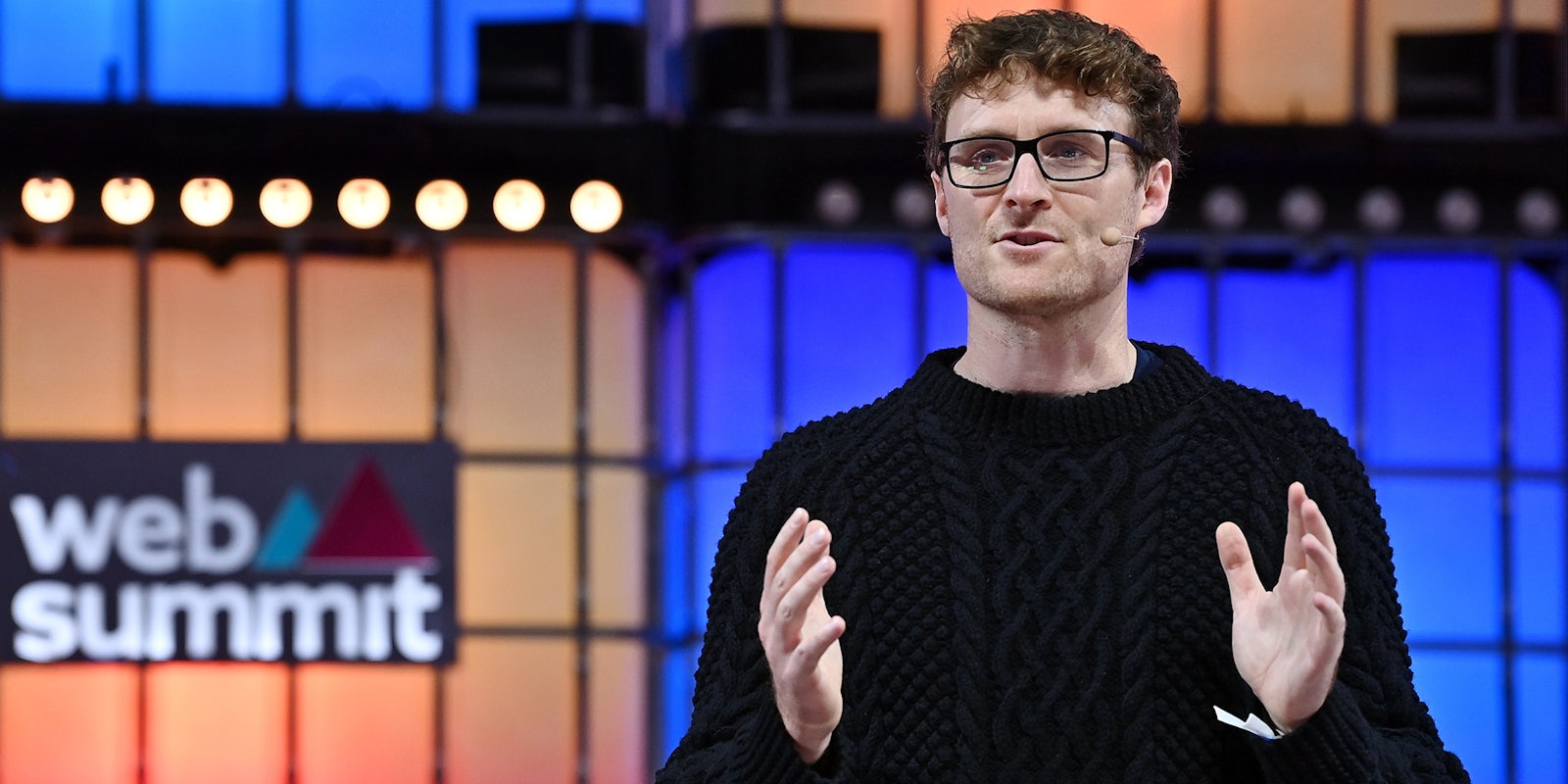Europe’s premier technology conference, the Web Summit in Lisbon, is facing unprecedented backlash. Scheduled from Nov. 13-16, the summit, renowned for spotlighting innovative tech and fostering critical industry discussions, might face disruption due to a series of boycotts—due to Web Summit founder/CEO Paddy Cosgrave’s comments on Hamas and Israel.
Cosgrave made a series of social media posts regarding the Israel-Hamas conflict. In one, Cosgrave said, “War crimes are war crimes even when committed by allies, and should be called out for what they are.” While he described Hamas’ actions as “monstrous evil” and acknowledged Israel’s right to defend itself, he stressed Israel should not breach international law.
First, what Hamas did is outrageous and disgusting. It is by every measure an act of monstrous evil. Israel has a right to defend itself, but it does not, as I have already stated, have a right to break international law.
— Paddy Cosgrave (@paddycosgrave) October 15, 2023
Second, here’s the host of the most watched chat show in… pic.twitter.com/HDdl2MrgfC
Despite subsequent clarifications from Cosgrave and an official statement from Web Summit expressing devastation over the loss of lives and condemning Hamas’ attacks, the damage had been done for many tech notables.
We are devastated to see the terrible killings and the level of innocent civilian casualties in Israel and Gaza. We condemn the attacks by Hamas and extend our deepest sympathies to everyone who has lost loved ones. We hope for peaceful reconciliation.
— Paddy Cosgrave (@paddycosgrave) October 16, 2023
Repercussions of Cosgrave’s comments
Israel officially pulled out of the event due to Cosgrave’s “outrageous statements,” as revealed by Dor Shapira, Israel’s Ambassador to Portugal. Shapira’s post emphasized that even in challenging times, it’s crucial to denounce terrorism and extremist views.
Today, I wrote to the Mayor of Lisbon informing him that #Israel will not participate in the @WebSummit conference due to the outrageous statements made by the conference CEO, Paddy Cosgrave.
— Dor Shapira
Even during these difficult times, he is unable to set aside his extreme political…(@ShapiraDor) October 16, 2023
Prominent figures across the tech world voiced their intent to skip the event and future Web Summit gatherings. The list includes David Marcus, former CEO of PayPal, and Adam Singolda, Taboola’s founder. Notably, Ravi Gupta, partner at Sequoia Capital, canceled his appearance, and Garry Tan, CEO of Y Combinator, condemned Hamas while announcing his non-participation.
Twitter’s role in the backlash on Cosgrave
Josh Kopelman highlighted inconsistencies in Cosgrave’s positions by pointing out posts the CEO liked, insinuating a potential anti-Israel bias. Garry Tan’s refusal to attend was also made public on Twitter. Tweets using #CancelWebSummit has gained traction, with some calling for sponsor companies like Intel and AWS to reconsider their partnerships.
Hard to take this statement at face value — given all the tweets @paddycosgrave has been liking over the last few days. I saved several of them on the attached google doc (so we have a record when the @WebSummit PR team asks him to delete them).https://t.co/MOvP5bXqLy https://t.co/ESdqPPCz5j
— Josh Kopelman (@joshk) October 16, 2023
Prominent figures and companies pull out
Numerous leading figures declared their withdrawal, both in solidarity with Israel and disagreement with Cosgrave’s views. Some have tweeting at Big Tech sponsors of Web Summit, such as Intel (which is one of the largest global companies working in Israel) and AWS, to cancel sponsorships, per VentureBeat.
This wave of cancellations threatens to dampen the event’s influence, marking a significant moment where tech, politics, and global issues intersect.
An anonymous person created a depot of Cosgrave’s own tweets, his liked tweets, juxtaposed against the tweets from Israel-supporting figures denouncing his comments. The site also includes a list to people who have canceled, or need assistance in contacting, with the intent to encourage cancellation.
The broader picture: Web Summit’s influence
The controversy extends beyond just one event. For instance, Josh Kopelman alluded to Web Summit’s future event in Qatar, a nation criticized for human rights issues, adding another layer to the debate.
Previously, Cosgrave has been no stranger to controversy. Past invitations to polarizing figures like Marine Le Pen were rescinded after public pressure, indicating that Web Summit’s challenges aren’t new.
Web Summit’s response
In light of the controversy, a Web Summit spokesperson emphasized the organization’s mission: Connecting ideas and people worldwide to foster positive change. They expressed regret over any hurt caused and reiterated their hopes for peaceful reconciliation.
As the tech world grapples with this situation, the incident underscores the increasing intertwining of technology and geopolitics. The outcome of this controversy might set a precedent for how tech conferences navigate complex political landscapes in the future.



